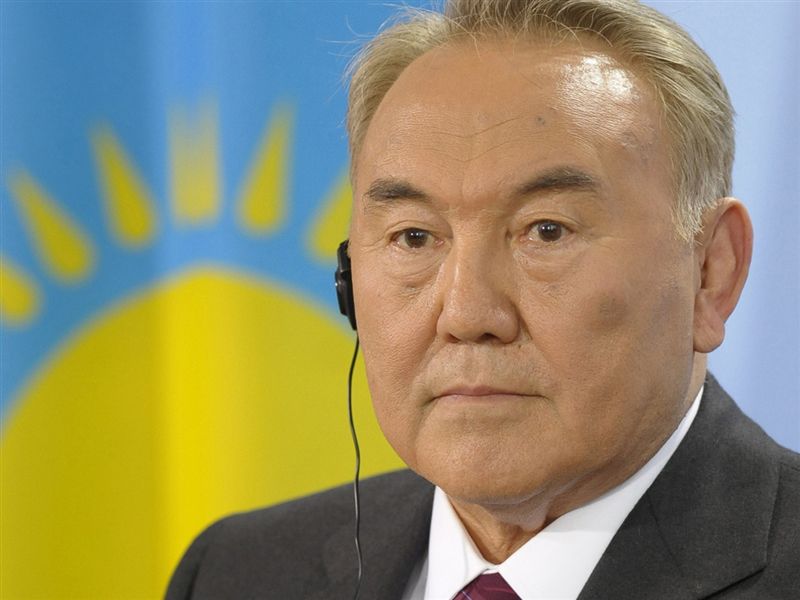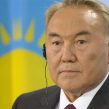
Kazakhstan Promotes Security Through the OSCE
Publication: Eurasia Daily Monitor Volume: 7 Issue: 7
By:

Kazakhstan’s chairmanship of the Organization for Security and Cooperation in Europe (OSCE) has begun with a clear indication that the country intends to prioritize security. Astana will present its initiatives for the year ahead to the OSCE on January 14, amid growing signs of pressure from within the CIS and western member states to shape or influence this agenda. However, there are already indications that Kazakh strategic thinking on its OSCE security plans might be reduced to window dressing and finding ways of avoiding upsetting the major powers (EDM, January 5).
One signal of this inclination to focus on the image of a country at the forefront of innovative ideas that the organization needs to discuss and agree upon came from Bulat Sultanov, the Director of the Kazakh Institute for Strategic Studies under the country’s president. In a recent interview with the Kazakh newspaper Kazakhstanskaya Pravda Sultanov argued that the OSCE now needs to change its name, reflecting the indivisible nature of European and Eurasian security, it should instead be called the OSCEA. In fact, he seemed to place this idea center stage, as though renaming the organization would be synonymous with reform, which many member states have advocated (Kazakhstanskaya Pravda, January 6).
Nonetheless, Sultanov admitted that the OSCE faces “difficult times,” and that it needs to be “restarted” in order to meet these and other unspecified modern requirements. This, in his view, is inextricably linked to the global financial crisis and the structure of the organization. To address these challenges, he strongly advocates holding an OSCE summit in Kazakhstan, which would be the first since Istanbul in 1999, recapturing the centrality of security and cooperation as its institutional focus, and determining the “specific tasks for the new decade.” He also appeared to link the country’s chairmanship of the OSCE directly to stabilizing Afghanistan, though this was restricted to discussion and supporting the international community in its efforts rather than offering deeper practical involvement. Finally, Sultanov offered a vision of Kazakhstan performing “the function of an outpost against challenges and threats, which are originating in Afghanistan and concerning the organization’s members, and can also become a guide to democratic ideas for countries located south of Kazakhstan including Afghanistan” (Kazakhstanskaya Pravda, January 6).
However, it is questionable as to where Sultanov’s message concerning democracy will be received. OSCE Foreign Ministers previously expressed concern over Kazakhstan’s human rights record and linked voting in favor of handing the rotating chairmanship to the country in December 2007 to making improvements in this area and showing greater commitment to democratic principles. President Nursultan Nazarbayev (president for life), since the onset of the financial crisis in Kazakhstan, has cracked down on the opposition and closed newspapers that are critical of the regime. In this context, Astana is likely to emphasize the security side of the OSCE’s role, and downplay its mandate to build democracy in member states (Radio France Internationale, January 4).
According to Kazakhstan’s foreign ministry press service, on January 9 the country’s Foreign Minister Kanat Saudabayev discussed boosting cooperation during a telephone call with his British counterpart David Miliband. The British Foreign Secretary stressed London’s interest in bilateral cooperation and in supporting Kazakhstan’s priorities as the OSCE chairman. However, he also raised the need for attention to be devoted to the long running conflicts within the OSCE space, particularly in Karabakh, Transnistria and South Ossetia. Apparently both sides expressed hope that during its OSCE chairmanship Kazakhstan might lay the basis for a renewed impetus to resolving these conflicts. An additional point of agreement related to the forthcoming international conference on Afghanistan in London on January 28, which both sides regard as “an important forum for the international community to discuss and work out specific measures to help stabilize that state” (Interfax-Kazakhstan, January 9).
Although Miliband was careful to avoid pressuring the Kazakh government, even raising the sensitive issue of South Ossetia, given Astana’s close relationship with Moscow, seemed to highlight its limited room for maneuver in dealing with more complex security issues. On December 25 the Russian Foreign Minister Sergei Lavrov outlined Russia’s key foreign policy priorities for 2010. High on that list was South Ossetia, but not in terms of opening any discussion on its status: “Maximum attention will be paid to steps intended to further strengthen allied relations with Abkhazia and South Ossetia and to maintain security and stability in the South Caucasus,” he said (Interfax, December 25). In this sense, it is unclear precisely what Miliband hopes that Kazakhstan will achieve on issues such as South Ossetia.
Kazakhstan’s security emphasis, as it commences its year as OSCE chair, is not unsurprising, or its attempts to present window dressing through the proposed name change or summit. Yet, its scope to formulate and build consensus within the OSCE for its forthcoming security initiatives is open to question. Strategically, it may well take steps to become an “outpost” in future against challenges and security threats stemming from Afghanistan, but its democratic pedigree is weak and it is unclear what ideas it might help to spread southward.




